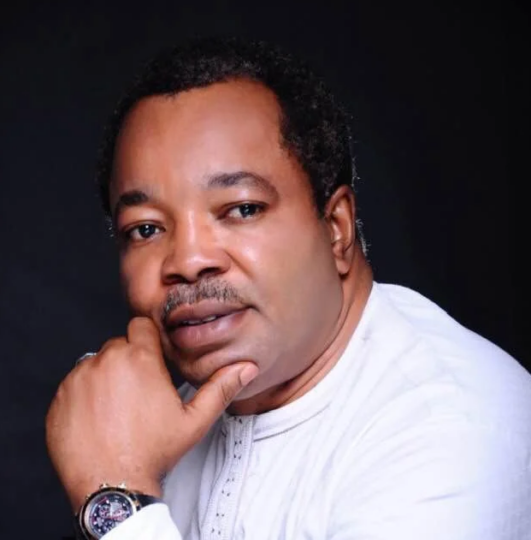Umahi’s Coastal Line, Soludo’s 10-Storey Hotel And Public Review Of Government’s Project, By Ebuka Onyekwelu
“Every government project embarked upon and completed is an addition to public infrastructure.” —Ebuka Onyekwelu
A few months ago, Anambra State Governor, Prof. Chukwuma Soludo was the subject of negative reviews because his administration decided to build a 10-storey hotel in Awka, the state capital. The basic argument was that government has no business with building hotels and that the focus must be on the government channelling lean resources to where they are most needed and not on fanciful projects. There was also the suspicion that the project could be a conduit for some illicit financial deals.
Even more, there were concerns that the administration might be gearing up toward creating more abandoned government projects in Anambra State. As this debate went on, only the government came out to defend its decision and to date, Soludo’s government is going on with the decision to build a 10-storey hotel against what appeared as a popular assessment and opinion of the governed.
In the past week, the Minister of Works, Engr. David Umahi, has come under criticism for his ministry’s decision to undertake the construction of the Lagos-Calabar coastal line. First, there are suspicions that the project is designed for some dishonest enrichment or cash flow in the hands of a few. Many have argued in fact, that the coastal line infrastructure from Lagos to Calabar, is not a priority for Nigeria now. There are so many arguments against the project, and as expected, the minister has come out to defend the project.
First of all, weighed on the scale of the order of importance of public infrastructure, there is absolutely no basis to compare Soludo’s 10-storey hotel with Umahi’s coastal line. Road infrastructure is high and far above leisure in the hierarchy of public needs. In fact, the proposed 10-storey hotel cannot correctly be classified as a need of the public. It is therefore intriguing that both proposed projects have elicited the same measure of backlash and suspicion from members of the public. One might however admit that it is generally doubtful if any government project has received total support from the populace.
A few years ago, when Governor Willie Obiano commenced the Anambra Airport project, it was easily dismissed as an “ego project,” “waste of public funds,” “means of diverting funds,” etc. There were several opinions discrediting the proposed project as it then was, on account of economic viability and relevance considering the proximity of Asaba and Enugu airports. In the end, Obiano went on with the project and completed it to the level that it was in use before he left office on March 17th, 2022. The airport has been running well ever since, not to mention that it is the preferred route for air passengers to and fro Anambra in particular and environs sometimes. The Second Niger Bridge commenced, completed, and commissioned by President Buhari might be considered as the single most important public infrastructure in the whole of Southeast since 1970. Yet, that project did not enjoy the total support of Nigerians despite its obvious importance. The challenge really is that Nigerians are suspicious of their government and so, this drives the bulk of negative reviews received on proposed government projects. Nigerian government at all levels has worked so hard to strengthen this suspicion and distrust in many ways. Yet, opinions and reviews of government-proposed projects are indeed opinions.
Does the government rely exclusively on public opinion to set its priorities?
The accusation that a proposed government project is not a priority might be credible until subjected to certain tests. For instance, who sets a government’s priority? Does the government rely exclusively on public opinion to set its priorities? What is the role of a government’s manifesto before it was elected, in setting the government’s priority? How about the party manifesto of the government? In any case, does democracy envision that for every proposed project and programme of an elected government, it must seek and stick to public opinion and assessment of the project or programme? Definitely not!
As governor Soludo is determined to go on with his 10-storey hotel project against popular opinion that he should not, if, in the unlikely situation he can complete the project in the next two years, or the subsequent years if he gets a second term in office, it is an addition to Anambra’s infrastructure. It would no longer matter whether it was publicly approved before or not. But if he fails to complete it in two years and also fails to return for his second term, the hotel might join the league of Abandoned Projects in Anambra State. Although, it is unlikely that the hotel will be completed in the next two years considering that the government is also constructing a capital-intensive new Government House and Governor’s Lodge, flyover at Ekwulobia, among other projects, with similar potential of becoming abandoned projects. Truly, even the basic infrastructure needs of the people left uncompleted is not in the interest of the public.
Also, for Umahi’s coastal line from Lagos to Calabar, the major challenge is whether the government led by President Tinubu will complete the project and not leave it to join the league of abandoned projects littered across the country. But in truth, every government project embarked upon and completed is an addition to public infrastructure. Priority project or not, the most critical concern is if the government is determined to finish the project within a record time. In this instance, although the government ought to be mindful of the people’s hierarchy of needs, yet, in the end, it matters more than a government completes whatever project it has embarked on. And never leave any project as a potential abandoned project.













